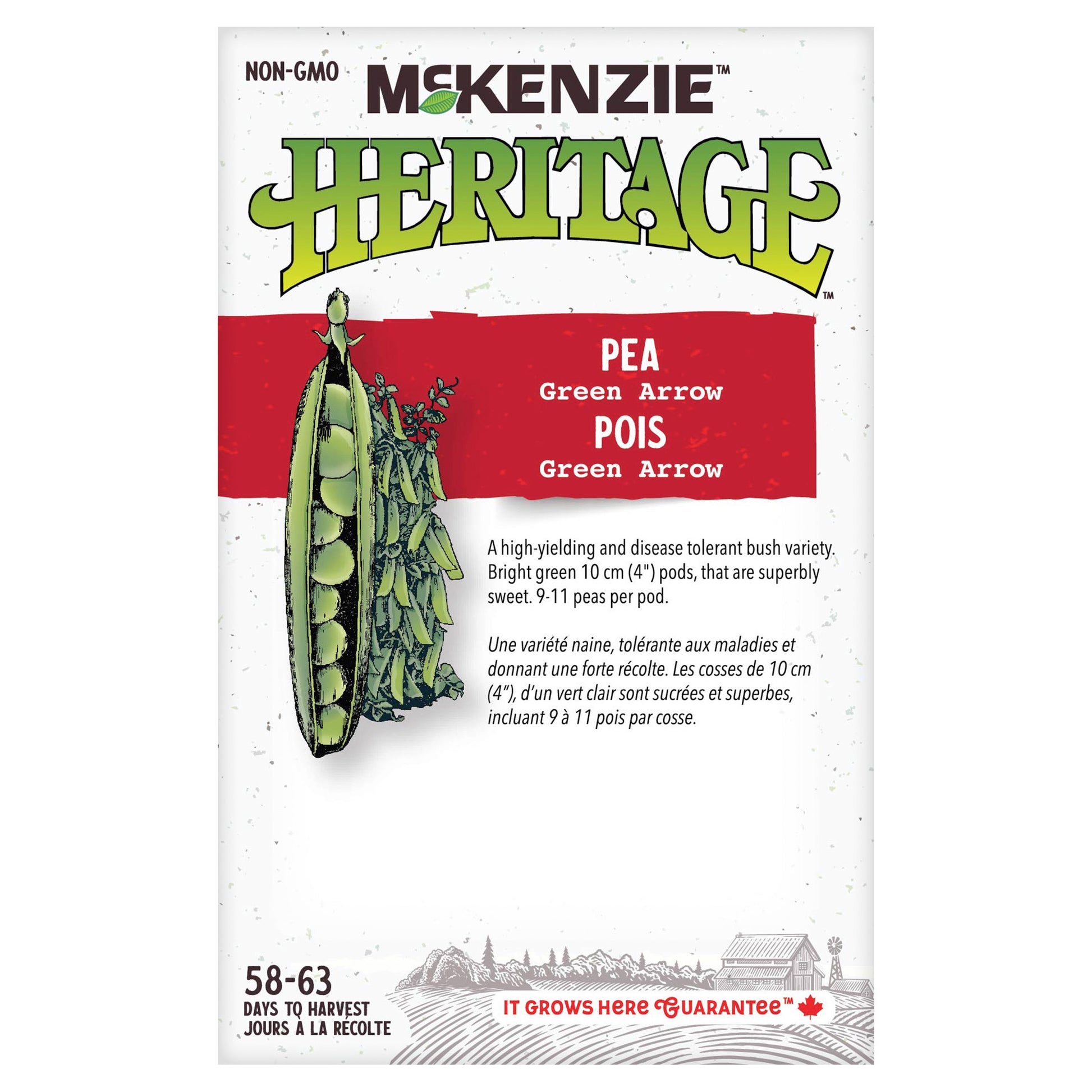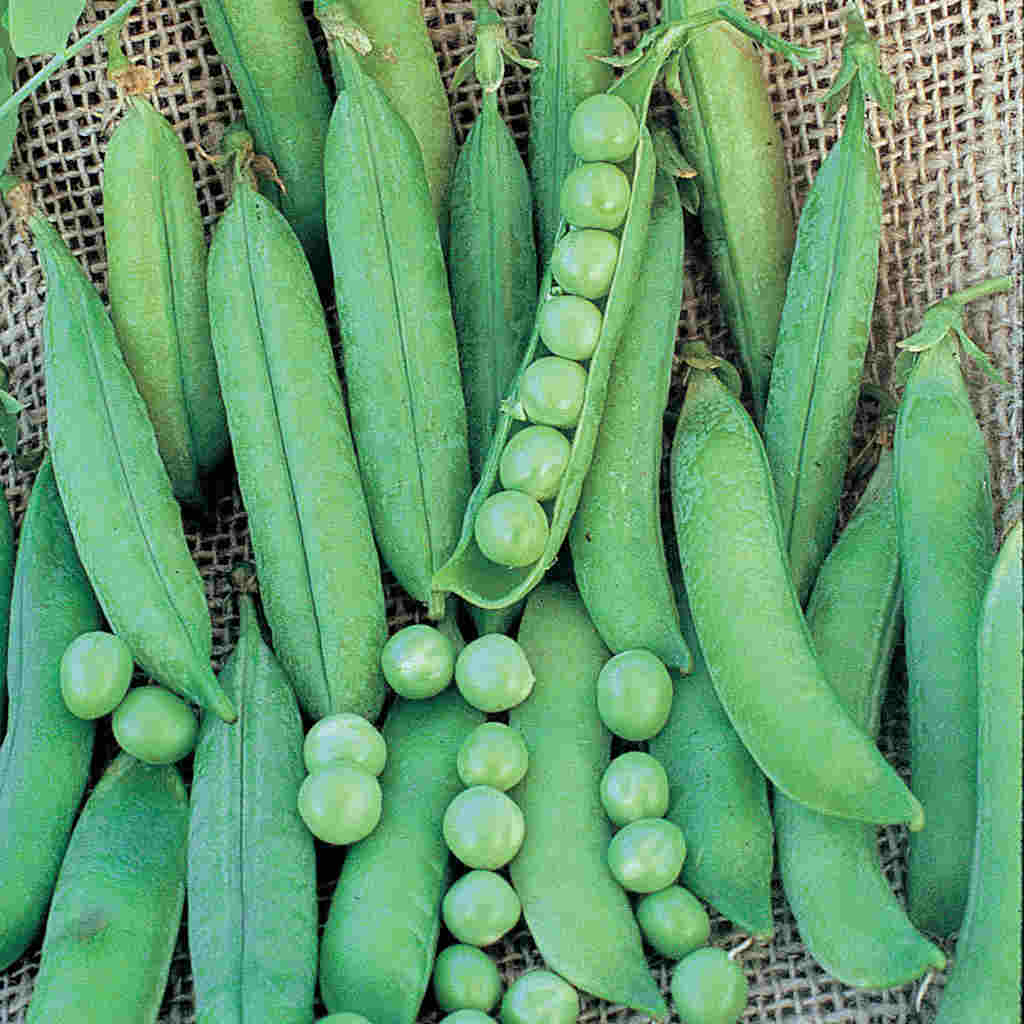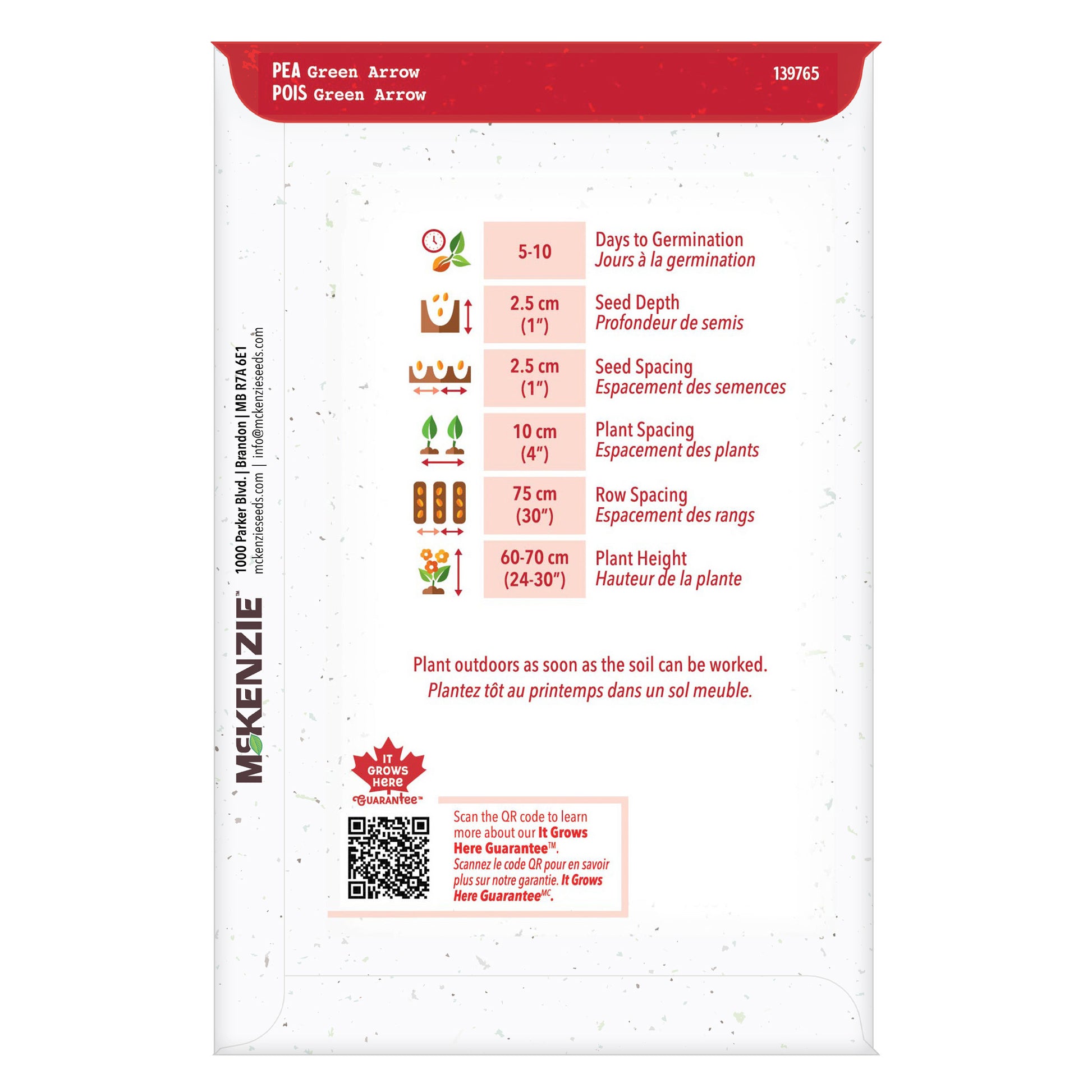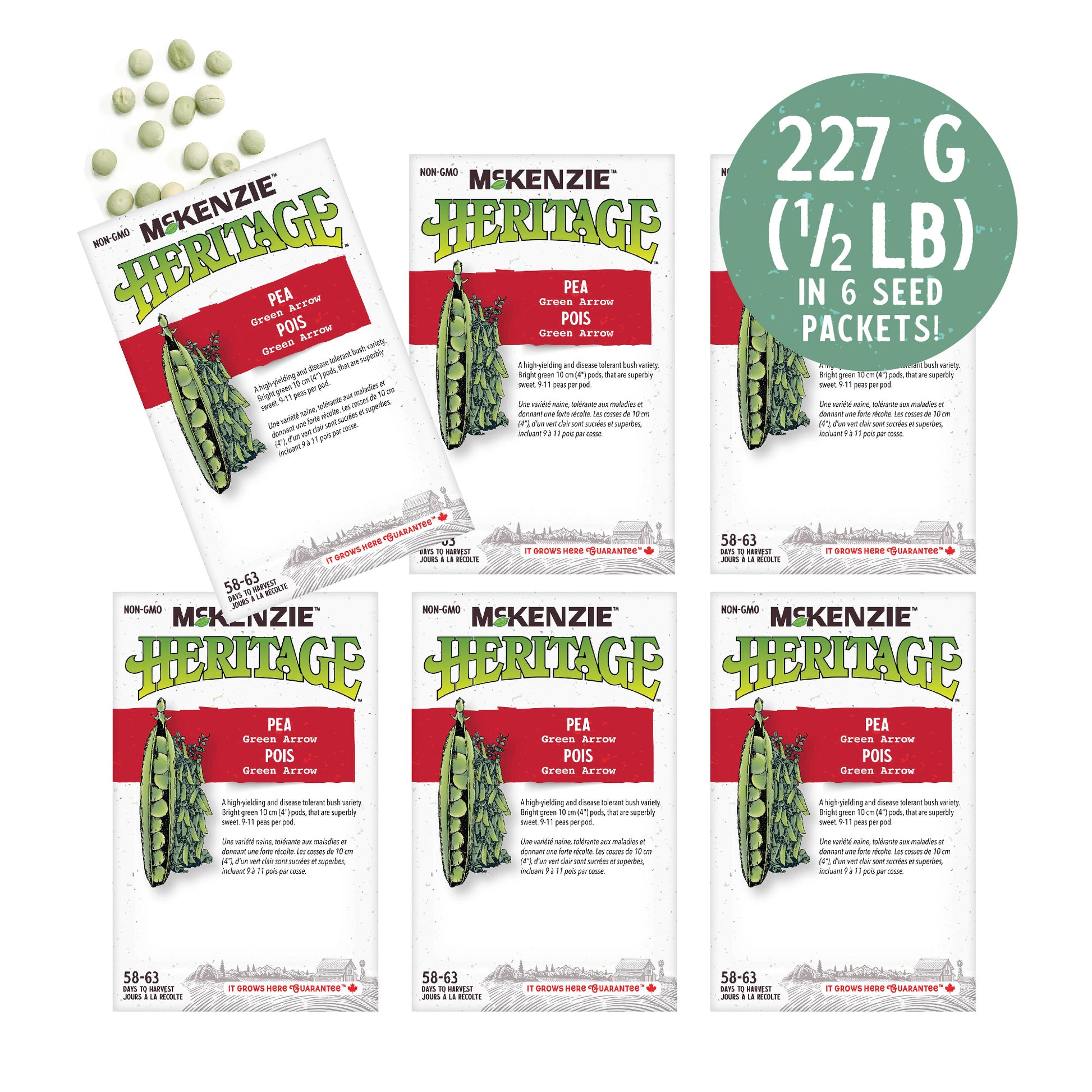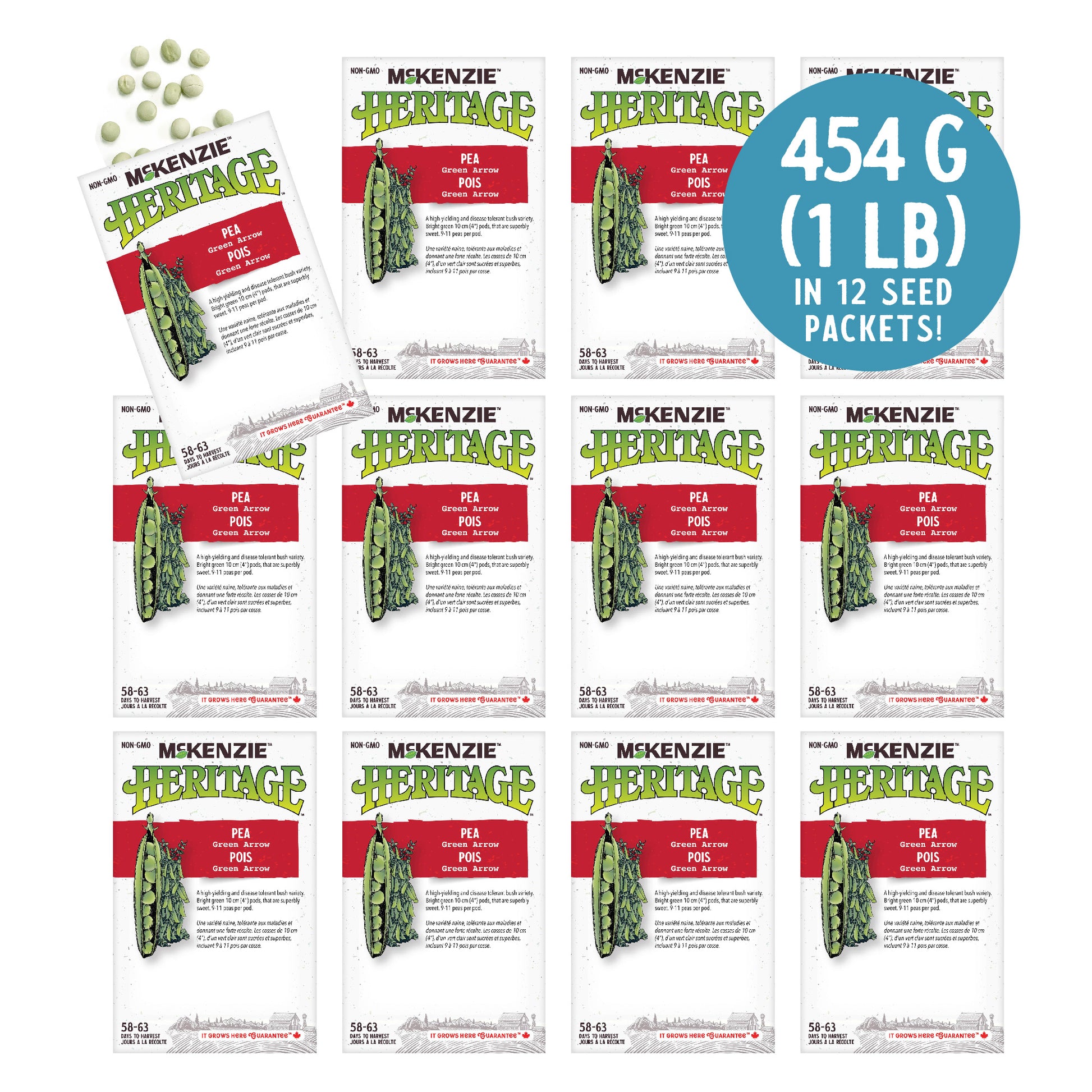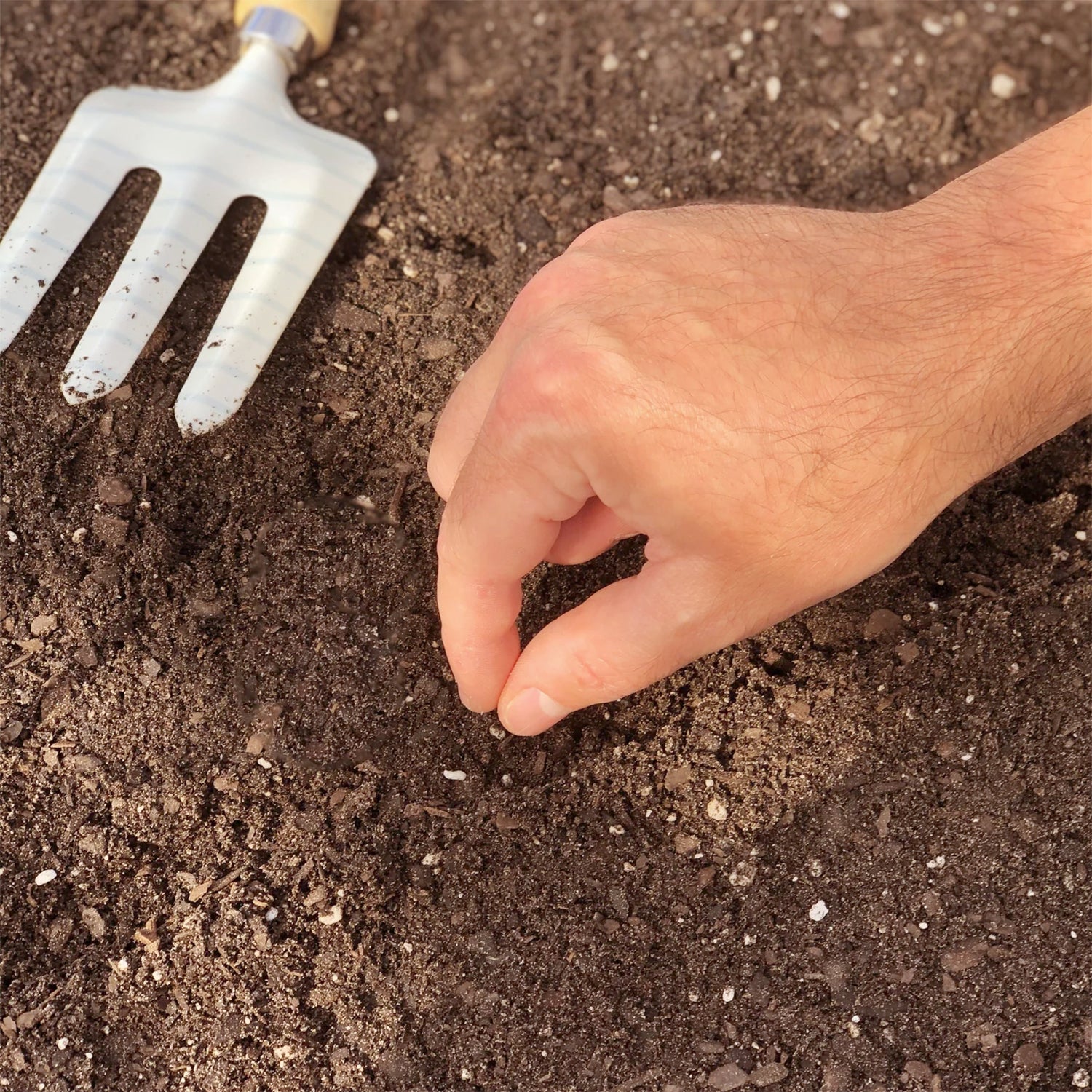Fall Holiday Weekend Sale — use code FALL30 at checkout. View All Offers >
Pea, Green Arrow Bulk Pack Seeds
Earn 6 points for this item with our
rewards program.

Grow a bountiful harvest with our Green Arrow Pea Bulk Pack Seeds.
Green Arrow peas produce very heavy yields and have outstanding flavor. Long 10 cm (4") pods fill with up to 11 peas per pod. The plants are very vigorous bearing pods in pairs on top of the vines, making harvest a snap. These plants are disease-resistant and will require some support to keep the productive plants upright.
- SKU: 139765
- Common Name: Pea
- Botanical Name: Pisum sativum
Safe
for Bees
Grows
Best In:
Days to
Germination:
Water
Needs:
Days to
Maturity:
Growing Height:
- Plant Type: Vegetable
- Plant Lifecycle: Annual
- Seed Type: Heirloom
- Fill Weight (grams): 38 g
- Approximate Seed Count: 130-140
- Characteristics: Shelling type
- Planting Method: Direct Sow
- Colour: Green
- Water Needs: Average 2.5-5 cm (1-2") per week
- Landscape Use: Edible Garden
- Resistance: Fusarium wilt|Root rot|Leaf curl virus (LCV)|Downy mildew
- Companion Planting: Plant near alyssum, carrots, chives, corn, lettuce, mint, radish, spinach, turnip. Chives have the ability to repel aphids. Mint not only enhances both the taste and health benefits of dishes, but also improves flavor. Alyssum serves as an attractant for pollinators and promotes the presence of green lacewings, which are natural predators of aphids. Avoid planting peas in close proximity to garlic and onions as they can impede the growth of peas.
- Flavour: Delicious fresh or canned
- Preparation Ideas: Shell peas and rinse under cold water. Place peas and add water until peas are covered. Bring water to boil and reduce heat. Cover and simmer peas until fork tender (approximately 1 minute). Drain and add butter, salt, and pepper to taste.
-
Growing Instructions:
- Planting Depth: 2.5 cm (1")
- Seed Spacing: Sow pea seeds roughly 2.5 cm (1") apart in rows, keeping rows approximately 75 cm (30") apart.
- Plant Spacing: 10 cm (4")
- Instructions for Nutrient Care: Feed plants SUPERthrive once per week. Mix 1.2 ml (1/4 tsp) per 4L (1 gallon) of water in a watering can and apply solution to the base of the plants.
Peas are a cool season crop and seeds can be sown directly in the garden in early Spring as soon as the soil can be worked. Soil temperature should be between 10-16° C (50-60°F) . To speed up germination, soak seed 30 minutes to 24 hours in room temperature water before planting. Space seeds and plant to the depth indicated below. Press seeds into the soil to ensure good contact and cover with 2.5 cm (1") of soil. After planting, water seeds with a gentle mist or shower. It is critical to keep the soil consistently moist, but not soggy during germination. When your seedlings reach a height of a few centimetres (inches) and have developed 2 or 3 pairs of leaves, it is important to thin them out, according to the plant spacing indicated below. Do not allow the soil to become dry, as young plants have underdeveloped roots and can quickly dehydrate, particularly in windy conditions. Pea seeds can be succession planted every to 2 weeks until mid June for a continuous supply of fresh beans. Harvest peas regularly to encourage further production.
Click here to read more information on planning and planting a garden.
- Garden peas are ready for harvest about 18-21 days after flowering. Pick the pods when the seeds are plump and shell before use. Harvest peas in the morning after the dew has dried. They are crispiest and sweetest then.
- Peas do not like excessive heat and will do poorly when temperatures exceed 26°C (80ºF).
- Keep an eye out for birds as they are prone to snack on sprouted peas. If necessary, cover young peas with a row cover.
- Most pea varieties are self-supporting during growth. Taller pea varieties are more productive and easier to harvest if they are trellised or fenced.
- Peas can be grown as microgreens for the quick-growing shoots.
- Do not overwater as wet soil promotes root rot diseases and slows plant growth. Water needs are most critical after flowering. Drought stress will decrease yield due to pod abortion and reduce seed size, increase pod stringiness, and alter seed quality.
- Peas have shallow root systems and care should be taken when cultivating and weeding near the plants.
- Flowers falling off plants? Plants may have been water or heat-stressed just prior to or after the flowers open. Pea flowers are very sensitive to temperatures above 26°C( 80ºF) and if dry conditions occur, the plants will shed their flowers.
- Stringy peas are the result of heat or water stress. Fibers in the pods get tougher making the pods less desirable.
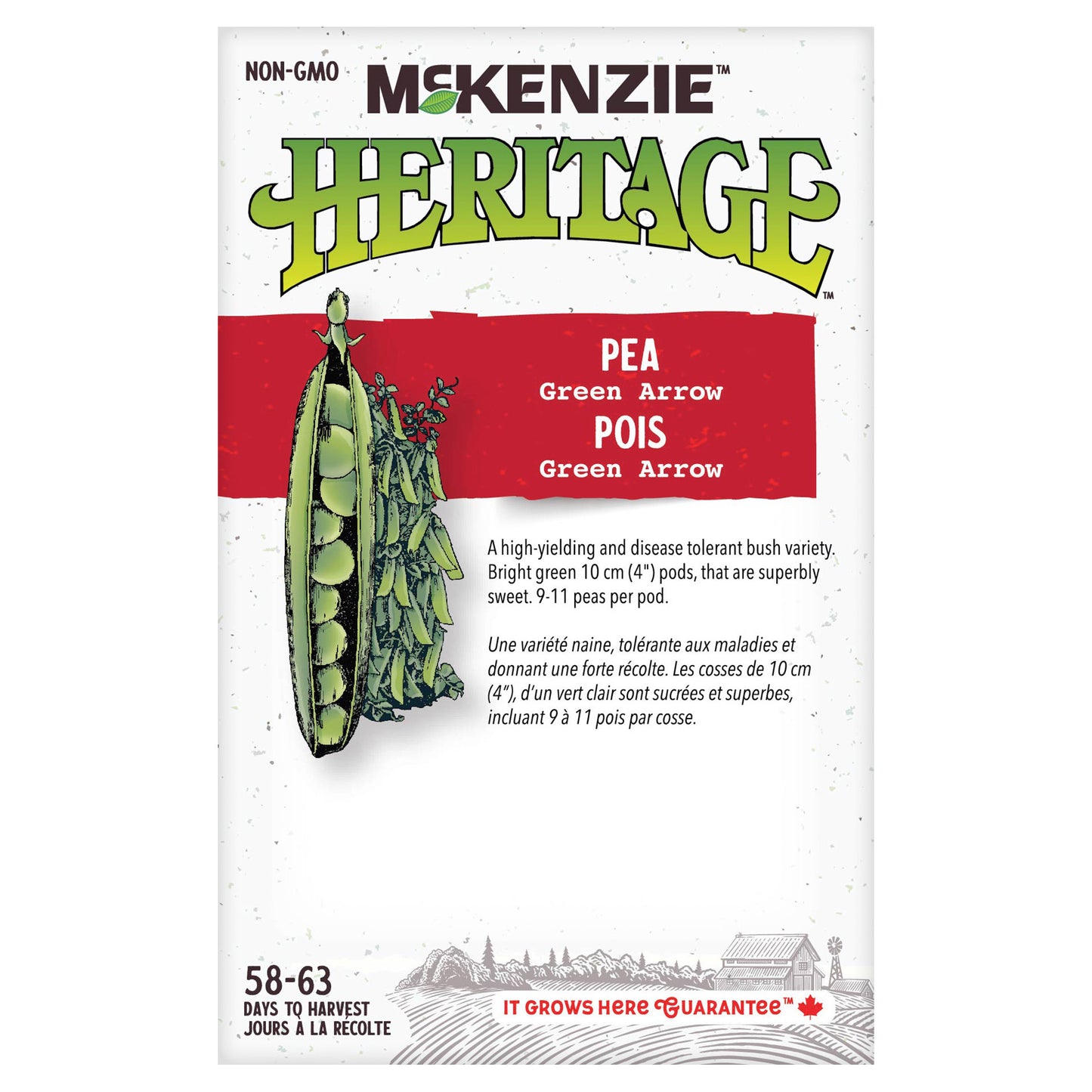
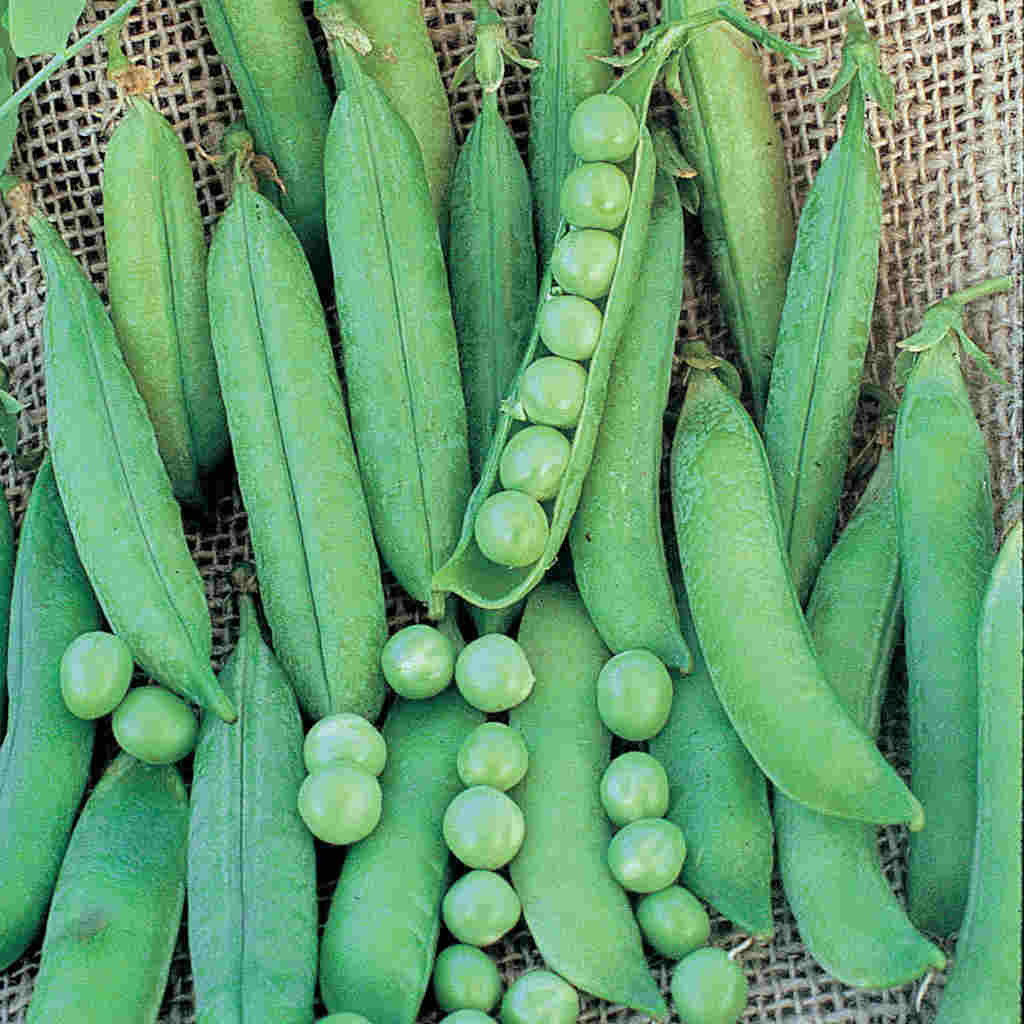
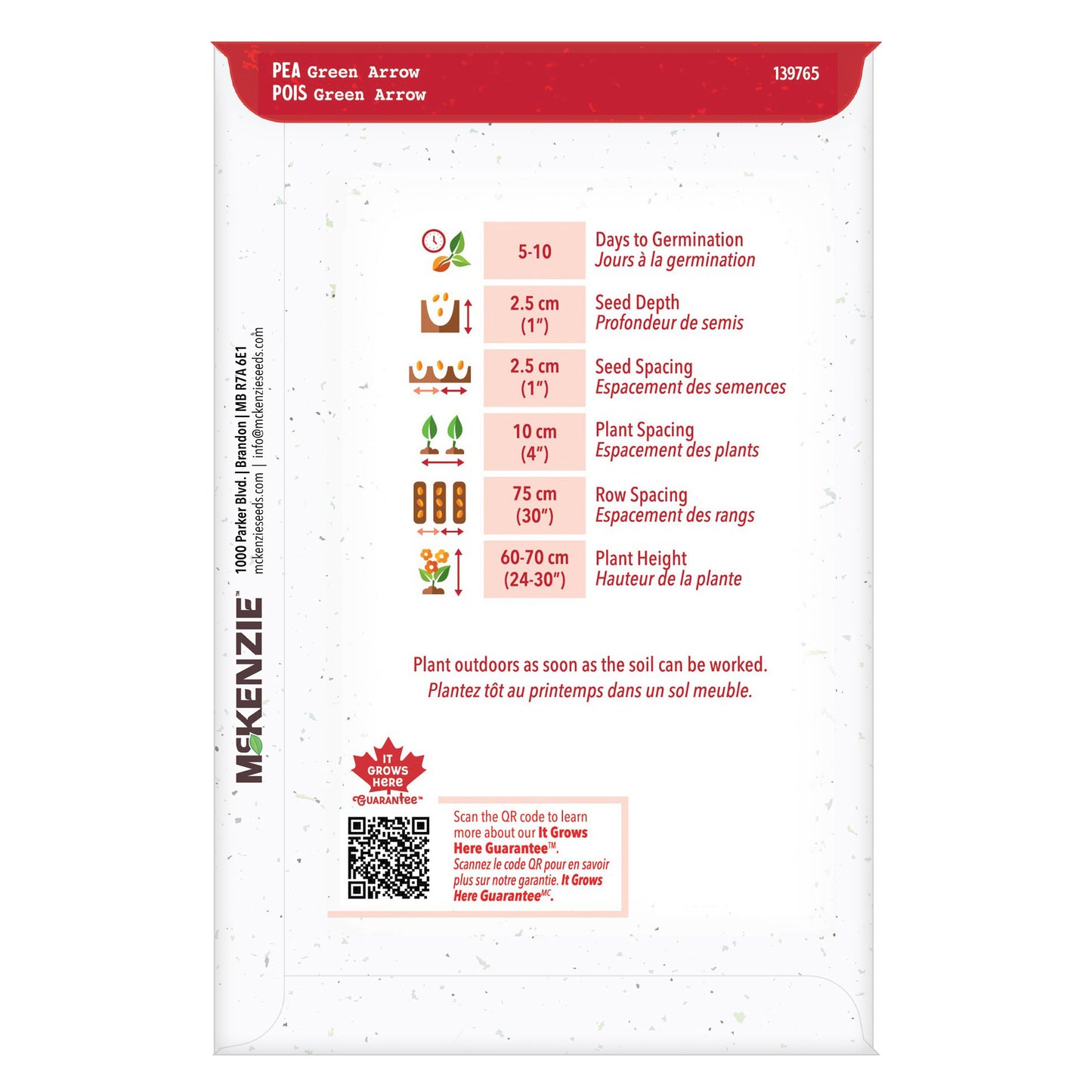
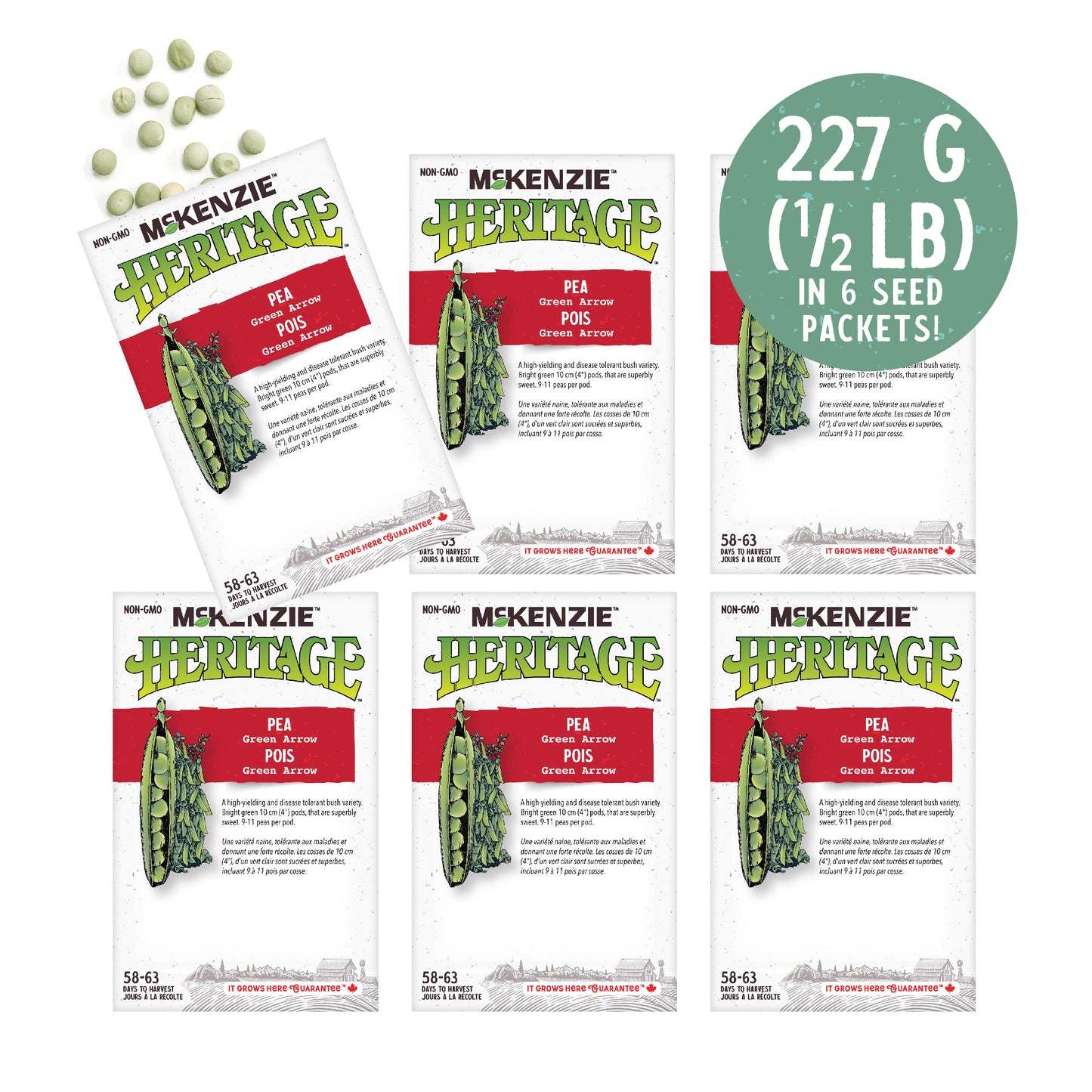
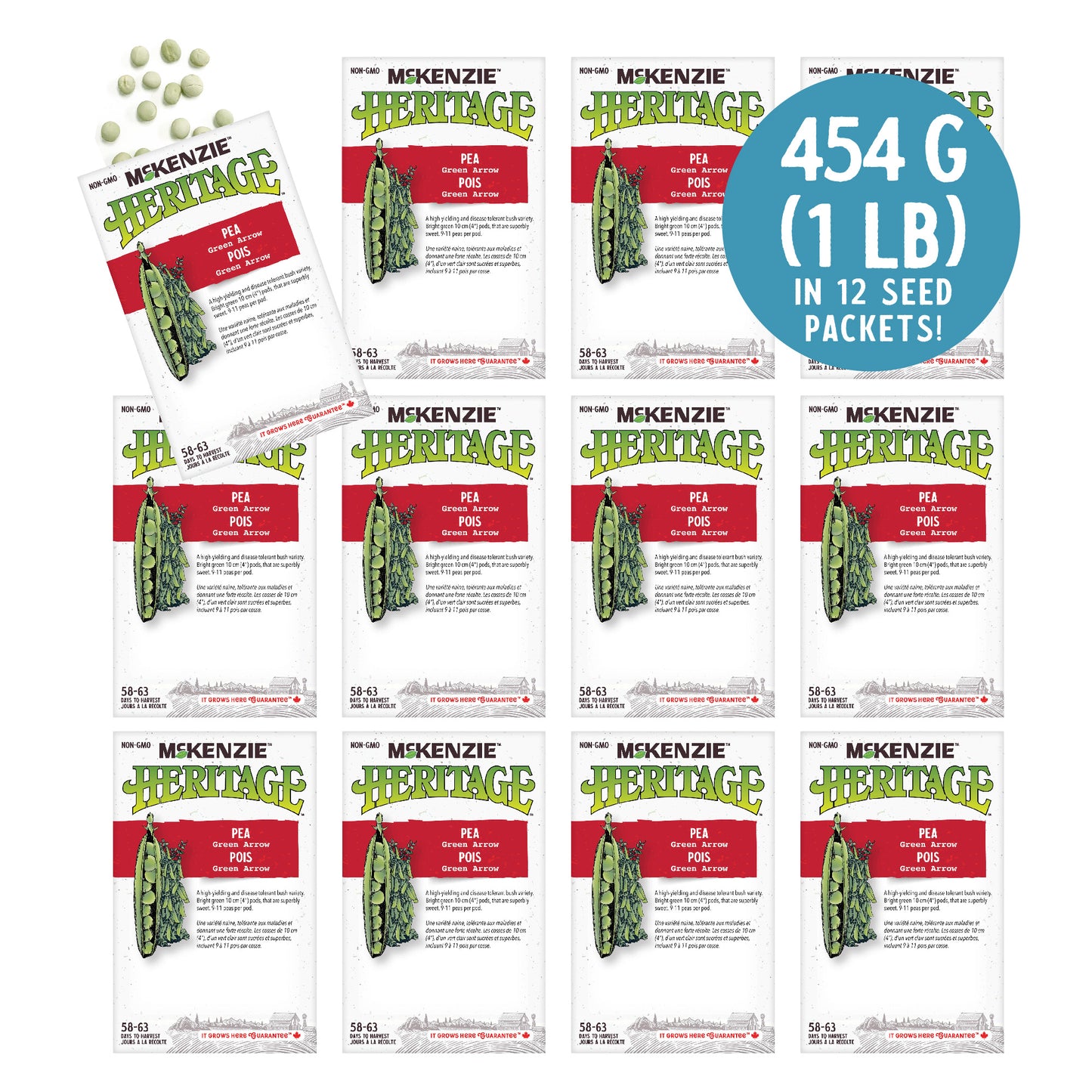
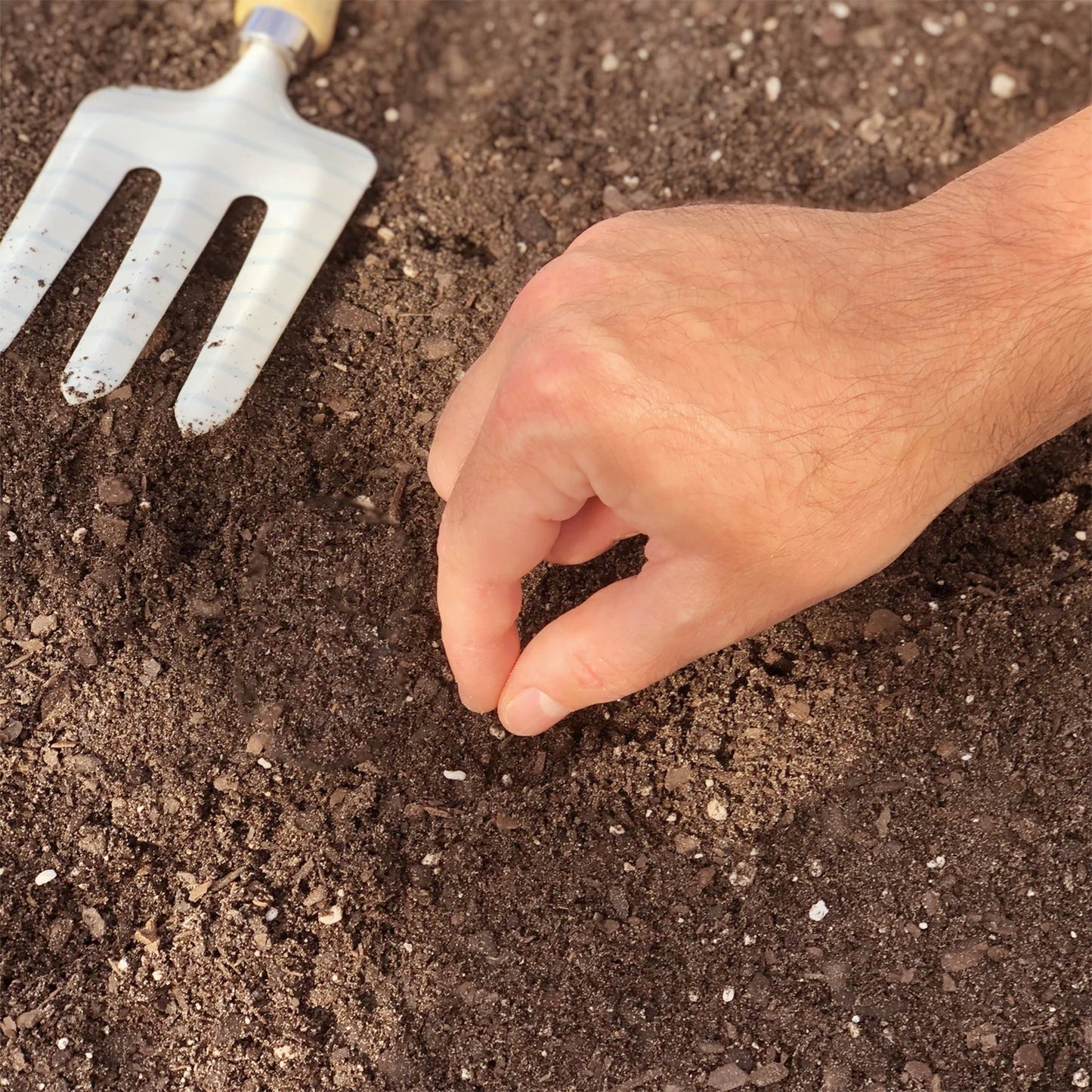
Pea, Green Arrow Bulk Pack Seeds
Register to receive a notification when this item comes back in stock.
Thanks! We'll let you know when this item is back in stock.
You may also like

Join our rewards program today to start saving!

Free Shipping on orders over $35

There are a ton of ways to earn!


